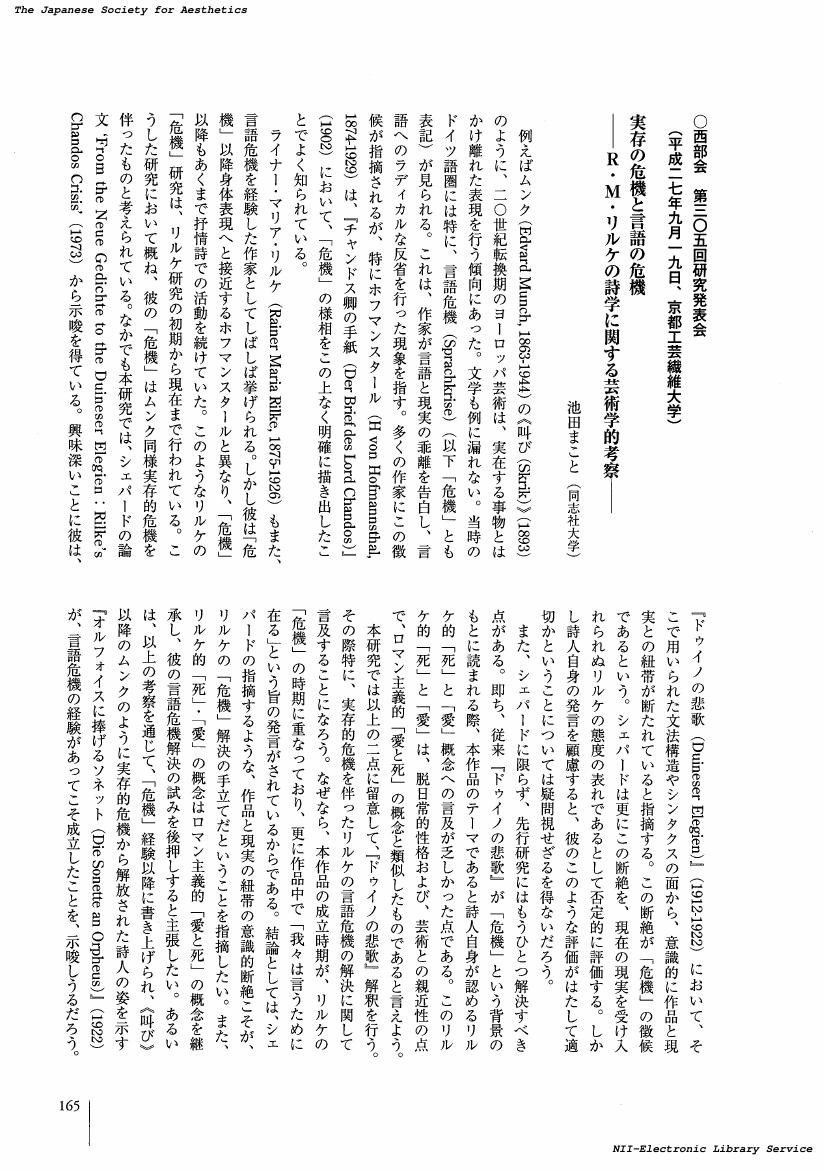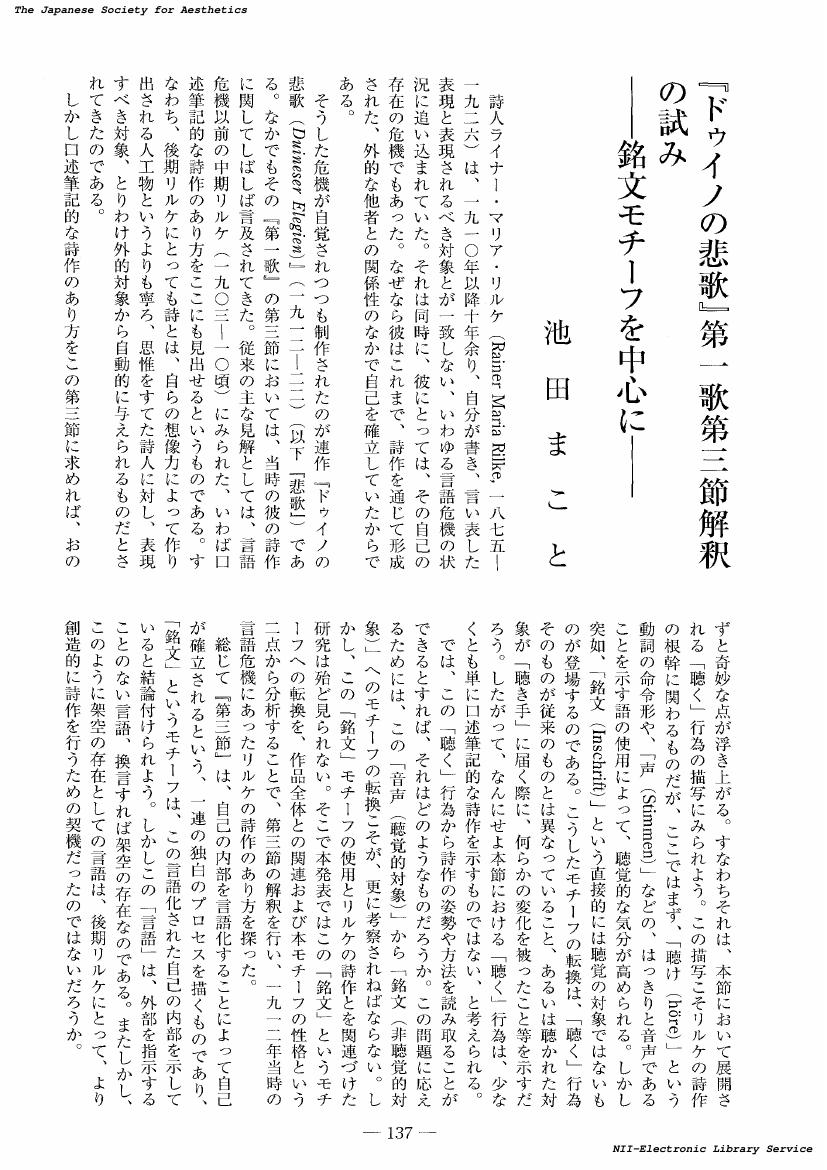8 0 0 0 OA R・M ・リルケの言語危機について ホフマンスタールとの比較を通じて
- 著者
- 池田 まこと
- 出版者
- 美学会
- 雑誌
- 美学 (ISSN:05200962)
- 巻号頁・発行日
- vol.67, no.1, pp.37, 2016 (Released:2017-07-18)
Language crisis occurred mainly in Germany and Austria of the early 20th century. It means the Situation that a language losts a function of the reality recognition. R. M. Rilke (1875-1926) is one of poets who experienced the language crisis. His crisis has been often compared with that of Hofmannsthal (1874-1929) conventionally. However, the comparisons were intended to rather give the common points of both. Therefore, this article tries to make their difference clear, and throw light on the originality of Rilke’s crisis. This report compares Rilke with Hofmannsthal with following three points: (1) the aspect of the crisis, (2) the factor of the crisis, (3) the way to solve the crisis. In conclusion, the aspect of Rilke’s crisis is more existential than that of Hofmannsthal’s crisis. The crisis of Rilke occurs on a road establishing the view of the world of own, and, for it, the crisis of Hofmannsthal produces it to defeat a view of the world that was already established. The former tries to solve his crisis through verbal expression, and, for it, the latter pursues nonverbal expression.
- 著者
- 池田 まこと
- 出版者
- 美学会
- 雑誌
- 美学 (ISSN:05200962)
- 巻号頁・発行日
- vol.66, no.2, pp.165, 2015-12-31 (Released:2017-05-22)
- 著者
- 池田 まこと
- 出版者
- 美学会
- 雑誌
- 美学 (ISSN:05200962)
- 巻号頁・発行日
- vol.59, no.2, pp.137, 2008-12-31 (Released:2017-05-22)

